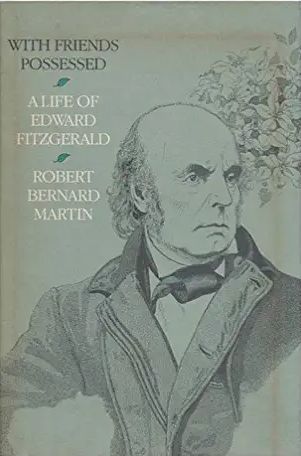The Rubáiyát: A Labour of Love. Reza Taher-Kermani.
Victoriographies, 7 (2017) 1, pp. 76-80.
This is an essay on the genesis of the Rubáiyát of Omar Khayyám. The contention is that the Rubáiyát ensued, at least, partly from the affection that Edward FitzGerald had for his friend and mentor in Persian, Edward Byles Cowell. FitzGerald used Omar Khayyám as an excuse to stay in touch with his dear friend Cowell, who left England after introducing him to Khayyám and his poetry. But FitzGerald soon fell in love with ‘Omar’, his new Persian mentor, and replaced the love that he had for Cowell with the one he developed for ‘Omar’. The result of this love was the Rubáiyát of Omar Khayyám.
